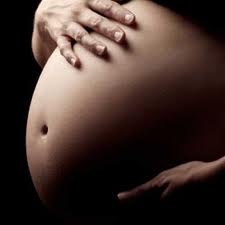There has been much discussion as to what is the right age to start a family. Just a few decades ago, it was common for women to marry and start families in their young twenties. Today, many women are choosing to establish themselves in the workforce before they have a baby. Many women are becoming first time parents their thirties and forties. What is the right age to have a baby? There are advantages and disadvantages at every age, and it all boils down to personal preference.
In Your 20’s
 Your twenties are your most fertile years, and a women’s chance of conception is approximately twenty percent each month. The upside to pregnancy in your twenties is a lower risk of miscarriage, Down syndrome, gestational diabetes and hypertension. Your body will also rebound much faster after birth. Along with a low risk pregnancy, women in their twenties have an easier time post partum losing the pregnancy weight. They also have more energy to care for a newborn and chase an active toddler.
Your twenties are your most fertile years, and a women’s chance of conception is approximately twenty percent each month. The upside to pregnancy in your twenties is a lower risk of miscarriage, Down syndrome, gestational diabetes and hypertension. Your body will also rebound much faster after birth. Along with a low risk pregnancy, women in their twenties have an easier time post partum losing the pregnancy weight. They also have more energy to care for a newborn and chase an active toddler.
The downside to a baby when you’re this young is less financial stability, and sometimes an emotional instability as well. Women in their twenties are trying to establish careers and they’re very focused on their marriages. Adding a baby to the mix can be a big stressor for some women, and they may have trouble juggling the needs of a newborn while they’re still adjusting to life on their own.
In Your 30’s
Women in their thirties often feel ready to start a family, especially if they’ve spent their twenties establishing a career. Along with security in the workforce, they have more resources to care for their baby. Financial stability and a greater sense of self make your thirties an excellent age to start a family. However, women tend to feel pulled in different directions after baby, unsure if they’ll be able to reenter the workforce.
Fertility gradually begins to decline after age thirty, and after age thirty five the decline is much more rapid. The rate of cesarean deliveries is higher for women in their thirties than women in their twenties. Women in their thirties tend to have longer labors, and the chance of multiple births increases for women in this age group. There is a slightly higher risk for having a Down syndrome baby, and the risk of high blood pressure during pregnancy is increased in women over thirty five.
While women in their thirties tend to be more emotionally prepared to care for a newborn, they may want to consider a first pregnancy prior to age thirty five. If they wait until after age thirty five they may experience fertility struggles and other pregnancy hurdles.
In Your 40’s
Having a baby after age forty is difficult, and the chance of conceiving during any one cycle is only about five percent. Once pregnant, the risk of miscarriage is one in three. Women who have babies in their forties face an increased risk of Down syndrome and other chromosomal abnormalities. A healthy pregnancy and recovery post partum greatly depends on your level of fitness and overall good health prior to getting pregnant.
The upside to having a baby in your forties is your emotional self. Women over age forty have lived through more experiences than younger women. You’ll also likely have more patience for a newborn. Women in their forties are more established and have a greater sense of self than women in their twenties and young thirties.
Having a baby is a life altering experience at any age, and every women needs to decide when the right time is for them to start a family. Financial and emotional stability will make having a baby a much more enjoyable experience, and every woman should have a support system in place before starting a family. The good news is that becoming a mother is one of the greatest gifts, and the joy is abundant at every age.
Expecting a baby soon and still have not chosen a stroller yet? Let Annie and Rick help. They provide detailed reviews on many of the top rated brands available. Take a look at their City Mini Reviews. Follow them on Twitter @stroller_review.

